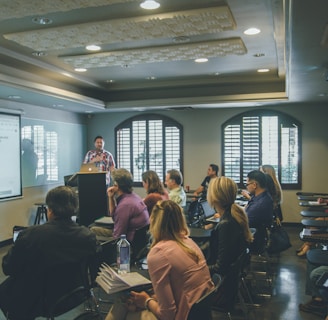

In the ever-evolving landscape of higher education, the significance of faculty development programs under the umbrella of study abroad initiatives has become increasingly paramount. These programs play a pivotal role in enhancing the academic prowess of educators, fostering cross-cultural collaborations, and enriching the overall learning experience for students.
Firstly, it's crucial to understand the essence of study abroad and its transformative impact on both students and faculty. Study abroad programs entail academic experiences conducted in a foreign country, offering students the opportunity to immerse themselves in diverse cultures, engage with global perspectives, and gain a comprehensive understanding of their chosen field of study. These programs extend beyond the students themselves, influencing the educational landscape by providing faculty members with unique professional development prospects.
Faculty development programs within the study abroad framework are designed to equip educators with the necessary skills, knowledge, and cultural sensitivity to navigate international academic environments effectively. These programs cater to the evolving needs of faculty, preparing them for the challenges and opportunities inherent in leading study abroad initiatives.
One of the key focal points of faculty development under study abroad is the enhancement of teaching methodologies. Faculty members participating in these programs often engage in workshops and training sessions that emphasize innovative pedagogical approaches suited to a globalized learning environment. These approaches go beyond traditional classroom settings, encouraging experiential learning, collaborative projects, and interactive teaching methods that resonate with diverse student populations.
Cultural competence stands out as a significant aspect of faculty development in the study abroad domain. Educators partake in immersive experiences, such as cultural exchange programs and language courses, to deepen their understanding of diverse cultures. This cultural competence is not only beneficial for faculty members working in international programs but also enriches the overall academic environment of their home institutions, fostering inclusivity and global perspectives.
Furthermore, faculty development programs address the intricacies of curriculum design and adaptation. In a globalized educational landscape, curricula need to be flexible, reflective of diverse cultural perspectives, and aligned with international standards. Faculty members undergo training to reevaluate and adapt their course content, ensuring that it remains relevant, inclusive, and globally competitive.
Collaboration is a cornerstone of study abroad initiatives, and faculty development programs actively encourage and facilitate cross-cultural collaborations. Faculty members engage in joint research projects, international conferences, and academic partnerships with institutions in other countries. These collaborations not only contribute to the global reputation of their home institutions but also provide students with unparalleled opportunities for international exposure and learning.
In the realm of research, faculty development programs emphasize the importance of staying abreast of global advancements in various fields. Exposure to international research methodologies, access to cutting-edge facilities, and collaboration with experts from around the world contribute to the professional growth of faculty members. The integration of global perspectives in research not only elevates the academic standing of faculty but also benefits students by exposing them to the latest developments in their chosen fields.
Language proficiency is another crucial aspect addressed in faculty development programs under study abroad. Faculty members participating in these initiatives often undergo language courses, ensuring effective communication with students from diverse linguistic backgrounds. This linguistic adaptability not only facilitates teaching in international settings but also sets an example for students, encouraging them to embrace language diversity.
The impact of faculty development under study abroad extends beyond individual educators and permeates the entire academic ecosystem. By fostering a culture of continuous learning and adaptability, these programs contribute to the institutional growth of universities. The internationalization of faculty expertise enhances the reputation of institutions, making them attractive hubs for students seeking a globally-oriented education.
Moreover, faculty development programs play a crucial role in preparing educators to navigate the administrative and logistical aspects of study abroad initiatives. Understanding visa processes, managing cultural sensitivities, and addressing the diverse needs of international students are integral components of this preparation. Faculty members emerge from these programs not only as proficient educators but also as adept administrators capable of facilitating seamless study abroad experiences.
The benefits of faculty development under study abroad are not confined to academic realms; they extend to the personal growth of educators as well. Living and working in a foreign country exposes faculty members to new perspectives, challenges preconceived notions, and nurtures a spirit of adaptability. These experiences contribute to the holistic development of faculty members, making them not only academically proficient but also culturally aware and globally conscious individuals.
In conclusion, faculty development programs under the study abroad paradigm play a vital role in shaping the future of higher education. These programs empower educators to navigate the complexities of international academic environments, enhance their teaching methodologies, and contribute to the global standing of their home institutions. The ripple effects of faculty development extend to students, institutions, and the academic community at large, fostering a culture of inclusivity, innovation, and global collaboration. As the world becomes increasingly interconnected, the role of faculty in study abroad initiatives becomes ever more crucial, ensuring that education remains a dynamic and enriching experience for students worldwide.
Read also - https://www.admit360.in/challenges-indian-students-studying-abroad
